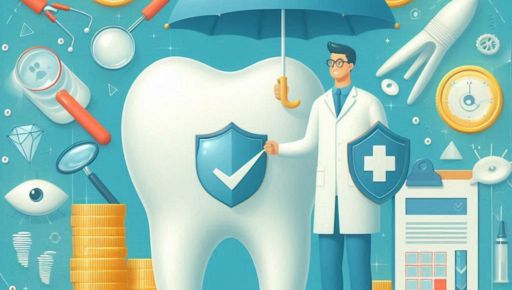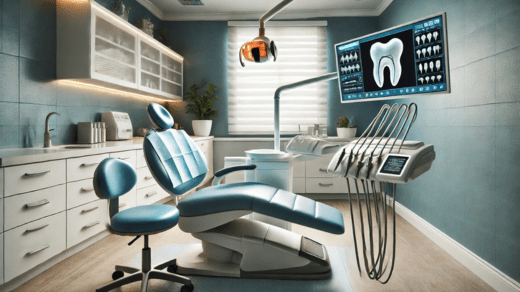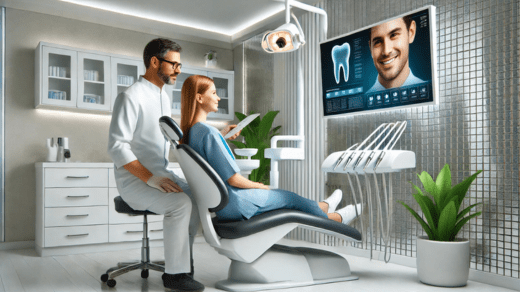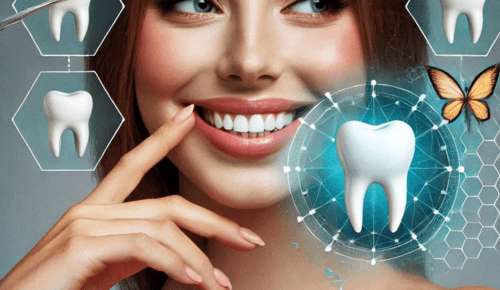
When people think about essential health coverage, medical insurance is often the first thing that comes to mind. Yet, dental and vision insurance are crucial aspects of a comprehensive health plan that often go overlooked. Dental and vision health are closely connected to your overall well-being, influencing everything from cardiovascular health to mental clarity and productivity. Let’s discuss the value of dental and vision insurance, what each typically covers, and how these policies contribute to long-term health benefits that go far beyond teeth and eyes.
Why Dental and Vision Insurance Are Often Separate from Medical Insurance
Unlike medical insurance, which covers a broad range of health concerns, dental and vision insurance specifically target two areas of health that, while separate, require regular, preventive care. These specialties have unique cost structures and risk factors, so they are frequently offered as standalone policies or as additional options within employer-based benefits packages. Having separate coverage for dental and vision health allows insurers to focus on the preventive and routine care that these specialties require.
Now, let’s take a closer look at the specific benefits of dental and vision insurance and why they’re critical to your overall health.
The Benefits of Dental Insurance
Dental insurance is designed to help people afford the regular care needed to maintain healthy teeth and gums. Routine dental visits do much more than keep your smile bright; they play a major role in preventing and identifying a range of health issues. Here’s how dental insurance supports both oral and overall health.
1. Preventing Major Oral Health Problems
The primary goal of dental insurance is to cover preventive care, including regular checkups, cleanings, and X-rays. Regular visits allow your dentist to detect issues such as tooth decay, gum disease, and oral infections early, often preventing more serious and costly treatments down the road.
Did you know that untreated gum disease can lead to tooth loss and increase your risk of developing other conditions, such as diabetes and heart disease? Preventive care keeps your mouth healthy and reduces the likelihood of needing invasive and costly procedures.
2. Affordability for Expensive Treatments
Even with preventive care, some dental issues are inevitable. Whether you need fillings, root canals, crowns, or even dental implants, having dental insurance can save you a substantial amount of money. Many policies cover a percentage of the costs for restorative procedures, making treatments that would otherwise be expensive far more affordable.
3. Improved Overall Health
Oral health is connected to your overall health in surprising ways. Studies have shown links between gum disease and conditions like heart disease, stroke, and even Alzheimer’s. Bacteria from oral infections can enter the bloodstream, potentially affecting other organs and contributing to inflammation. Dental insurance ensures regular access to dental care, which in turn can lower your risk for these serious health issues.
4. Enhanced Self-Confidence and Mental Health
Oral health has a significant impact on self-esteem and mental health. Many people with dental issues feel self-conscious about their smiles, which can lead to social anxiety and lower confidence. By making dental care affordable, dental insurance helps people maintain an attractive smile, boosting their self-esteem and contributing to better mental well-being.
Common Types of Dental Insurance Coverage
When you’re looking into dental insurance, it’s essential to understand the levels of coverage most plans offer:
- Preventive Care: This typically includes cleanings, exams, and X-rays, which are often fully covered by most insurance plans.
- Basic Restorative Care: Treatments like fillings, root canals, and simple extractions are generally covered partially (often around 70-80%) by most plans.
- Major Restorative Care: Procedures such as crowns, bridges, dentures, and implants fall into this category. Coverage varies but is often around 50%, with some plans having annual maximums on these services.
With a good understanding of these levels, you can choose a plan that best suits your oral health needs, providing peace of mind that you’ll be prepared for both routine and unexpected dental care.
The Importance of Vision Insurance
Vision insurance is another often-overlooked yet crucial form of coverage. Many people think that if they don’t need glasses or contact lenses, they don’t need vision insurance. However, vision insurance is about much more than just covering the cost of eyewear. It supports eye health by covering regular eye exams, which can detect serious health conditions before symptoms even arise. Here’s why vision insurance matters.
1. Routine Eye Exams Can Reveal Serious Health Conditions
Routine eye exams do more than check your vision. They can detect early signs of conditions like diabetes, high blood pressure, and even certain cancers. Many systemic diseases affect the blood vessels in the eyes, allowing optometrists and ophthalmologists to catch health issues early. For example, diabetic retinopathy, a common complication of diabetes, can be spotted during an eye exam long before other symptoms appear.
2. Affordable Access to Corrective Eyewear
For those who need glasses or contact lenses, vision insurance helps make these necessities affordable. Many policies cover a portion of the cost of lenses, frames, and contacts, which can be a financial relief for those who rely on corrective eyewear. With regular vision checks and new prescriptions, vision insurance ensures that your eyewear remains up-to-date, supporting clearer vision and reducing eye strain.
3. Supports Healthy Vision as You Age
As we age, we become more susceptible to eye conditions such as cataracts, glaucoma, and age-related macular degeneration (AMD). Vision insurance often covers the cost of screenings for these age-related issues, allowing for early intervention and treatment. Regular eye exams help identify these conditions early, making it easier to manage symptoms and slow progression.
4. Enhanced Productivity and Quality of Life
Clear vision is essential for productivity, particularly in work environments where computer screens, reading, or detailed tasks are involved. Uncorrected vision issues can lead to headaches, eye strain, and reduced concentration. By providing coverage for vision care, vision insurance helps maintain optimal eyesight, which directly influences productivity, safety, and quality of life.
Common Types of Vision Insurance Coverage
Vision insurance policies usually cover a specific range of services and products:
- Eye Exams: Regular comprehensive exams are often fully or mostly covered, ensuring you can check your vision and eye health annually.
- Prescription Glasses: Many plans include a discount or partial coverage for lenses and frames.
- Contact Lenses: Like glasses, contact lenses are usually covered partially, with options for an annual supply.
- Discounts on LASIK: Some vision plans offer discounts on LASIK or other corrective eye surgeries, making these options more affordable for those who are candidates.
Dental and Vision Insurance Together: A Holistic Approach to Health
Many employers and insurance providers offer dental and vision insurance as a combined package, recognizing that these coverages together provide a more complete health plan. Both dental and vision health contribute to your overall wellness in ways that often go unnoticed. By maintaining oral and visual health, you’re reducing your risk for serious health conditions and ensuring you’re able to function optimally in daily life.
Are Dental and Vision Insurance Worth the Investment?
One of the most common questions is whether dental and vision insurance are worth the investment, especially for those who don’t have immediate issues with their teeth or eyesight. Here are a few things to consider:
- Cost-Effectiveness: The cost of out-of-pocket dental or vision care can be high, particularly when unexpected issues arise. Insurance helps you manage these costs by covering preventive care and offering significant savings on more costly treatments.
- Preventive Care: Routine exams, cleanings, and screenings provided through these policies allow for early detection and intervention, often preventing the need for extensive treatments later.
- Quality of Life: Oral and vision health impact your quality of life, self-confidence, and ability to function comfortably and efficiently. Maintaining these aspects of health contributes to a happier, more productive life.
- Health Benefits Beyond Teeth and Eyes: As we’ve discussed, dental and vision health are connected to other aspects of your well-being, from cardiovascular health to mental clarity. Regular care in these areas can help prevent health issues that may otherwise go unnoticed.
Final Thoughts: Dental and Vision Insurance as Essential Parts of a Health Plan
Dental and vision insurance may not be the first things you think of when considering health insurance, but they are vital components of a comprehensive health strategy. By covering preventive care, making corrective treatments affordable, and contributing to overall well-being, these policies support you in maintaining a healthy and fulfilling life. If you haven’t yet invested in dental and vision insurance, consider adding them to your health plan—they’re more than just extra coverage; they’re a valuable foundation for your long-term health.
So, what’s your take? Are dental and vision insurance a part of your health coverage? Investing in these areas is an investment in your future health, providing peace of mind and ensuring you have access to essential care when you need it.




